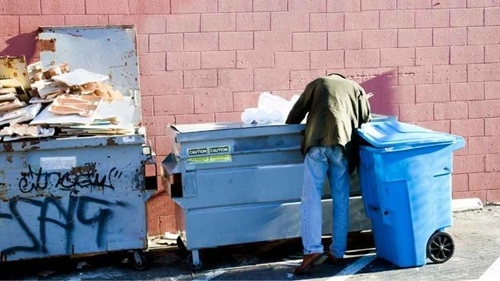Burning an old couch might seem like an easy way to get rid of unwanted furniture, but in the United States, doing so can easily land you in legal trouble. While there’s no specific federal law that says “you can’t burn a couch,” the act almost always violates local fire, environmental, and safety laws — and can result in fines, criminal charges, or both.
Here’s a detailed legal breakdown:

Federal Law: Environmental Restrictions
Under the Clean Air Act, it’s illegal to burn materials that release harmful pollutants into the air. A typical couch contains:
- Foam and padding made from polyurethane or other synthetic materials,
- Fabric and coatings treated with flame retardants, and
- Metal or plastic components inside the frame.
When burned, these materials release toxic chemicals, including carbon monoxide, dioxins, and volatile organic compounds (VOCs).
The Environmental Protection Agency (EPA) strictly prohibits open burning of household waste, which includes furniture. Even if you burn a couch on your own property, the resulting emissions can violate federal air quality standards — especially if black smoke or toxic fumes are produced.
So while there’s no law that specifically mentions couches, the act of burning one often violates federal environmental laws.
State and Local Fire Regulations
Most states and municipalities have fire codes or open burning ordinances that make it illegal to burn large household items like furniture.
For example:
- California: Open burning of furniture or trash is prohibited under Cal. Code Regs. Title 17, and violators can face fines or criminal citations.
- New York: State law bans the burning of “household waste,” which includes upholstered furniture.
- Texas: The Texas Commission on Environmental Quality (TCEQ) allows limited outdoor burning, but strictly forbids burning synthetic materials like couches.
- Ohio: Open burning of household items is illegal under Ohio EPA regulations, with fines up to $1,000 per violation.
Most local fire departments require a permit for any open fire — and they specifically prohibit burning items like couches, tires, or plastics. Violating these codes can lead to fire citations, environmental cleanup costs, and even misdemeanor charges if the fire spreads.
Fire Safety and Criminal Liability
Beyond environmental rules, burning a couch can create serious fire hazards. Upholstered furniture burns extremely hot and fast, often producing thick black smoke that can spread to nearby properties.
If the fire damages someone else’s property, injures a person, or spreads to public land, you could face:
- Reckless burning or arson charges,
- Civil liability for property damage,
- Fines and restitution costs from local fire departments.
Even if you burn it safely on your land, the smoke and odor may lead to nuisance complaints from neighbors — and local law enforcement can cite you for creating a public nuisance or air pollution violation.
Legal and Safe Alternatives to Burning a Couch
Instead of burning your couch, consider these lawful disposal methods:
- Bulk trash pickup: Most cities offer scheduled large-item collections.
- Donation centers: If the couch is in decent condition, donate it to Goodwill, Salvation Army, or a local shelter.
- Recycling centers: Many facilities dismantle couches for metal and fabric recycling.
- Landfill drop-off: You can legally dispose of furniture at a municipal landfill or transfer station.
These options are far safer — and cost far less than the potential fines for illegal burning.
FAQs About Burning a Couch
Q. Is it illegal to burn a couch in your backyard?
Yes, in almost all U.S. cities and states, it’s illegal to burn a couch outdoors due to fire safety and air pollution laws.
Q. What if I live in a rural area?
Even in rural counties, you typically need a burn permit, and household items like couches are usually excluded. Always check your local fire marshal’s office first.
Q. Can I burn a couch during a bonfire or celebration?
No. Public or private bonfires cannot include furniture or synthetic materials. Only clean, untreated wood is permitted.
Q. What are the penalties for burning a couch?
Penalties vary by state but can include fines from $100 to $10,000, environmental cleanup costs, and potential criminal charges if the fire causes damage.
Q. What’s the best legal way to get rid of an old couch?
Use city bulk pickup, recycling programs, or donation services. Many municipalities even offer free furniture removal a few times per year.
Conclusion
In the U.S., burning a couch is almost always illegal — not because of the item itself, but because of the environmental and safety risks involved. The combination of synthetic materials and fire hazards makes it both dangerous and unlawful under most federal, state, and local laws.
If you need to dispose of an old couch, stick to legal recycling or donation options. Burning might seem simple, but the legal consequences can be far more costly than calling for a pickup.

